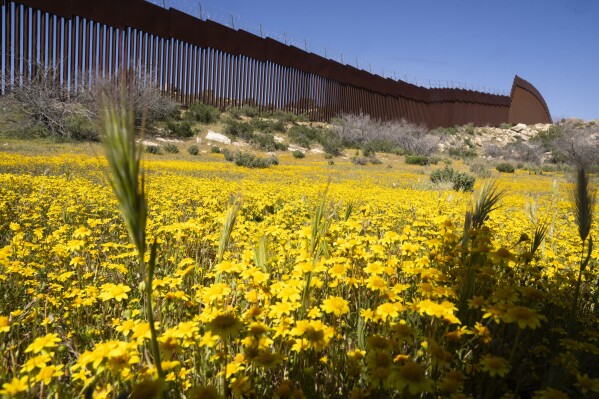Native seeds could soon be fueling new growth on burned out acreage across Hawaii
HONOLULU (AP) — The federal government is funneling millions of dollars to a University of Hawaii initiative aimed at increasing the number of seeds for hardy native and non-invasive plants that can compete against the dominant invasive grasses that fuel wildfires.
The U.S. Forest Service recently awarded UH $4.6 million so it can collect wild and native seeds to breed native plants across the island chain. Planting those native species is intended to help transform tracts of fire-prone land and to revegetate fire-affected lands, like those that burned on Maui and the Big Island in August last year.
The burn scars from those fires highlighted the state’s lack of native and non-invasive seeds that are necessary to stabilize wildfire-affected areas. The U.S. Department of Agriculture even recommended that non-native seeds be used because of a native seed scarcity in Hawaii.
But with the new cash, UH plans to begin harvesting and storing millions of the seeds from around the state in seed banks that specialize in holding seeds for conservation and to ensure biodiversity.
The grant is one of nine awarded to Hawaii by the forest service last week under the Community Wildfire Defense Grants program. The money comes from a five-year, $1 billion fund created under the Bipartisan Infrastructure Law.


The Hawaii Wildfire Management Organization and Hawaii county fire department received just over $1 million for eight projects. Those will help create or renew Community Wildfire Prevention Plans, a prerequisite to get federal funding for other fire prevention projects.
The UH project will include several organizations and is the only funding that will go toward implementing fire prevention and mitigation measures.
Hawaii is “so behind the curve” that it will have to start from square one, having to now start collecting and stockpiling seeds and propagating “workhorse species” of native plants to help revegetate burned landscapes, UH wildland fire researcher and project leader Clay Trauernicht said.
State lawmakers highlighted the issue in the aftermath of August’s fires and a House working group recommended increasing seed-banking capacity. But the Senate killed the House bill aiming to address the issue.
Trauernicht said that the $4.6 million will fund the work over the long term, as the project will have multiple stages and require collaboration between several new and existing organizations.
“We have to be strategic,” he said.
Collecting the seeds of hardier, common native species marks a departure from Hawaii’s previous seed-banking standards, which have been focused on threatened and endangered native flora, Lyon Arboretum seed bank manager Nathaniel Kingsley said.
But they have an important use because they “produce at greater capacity, quickly” and better compete with invasive and fire-friendly grasses, Kingsley said.
The plants and seeds to be banked will likely include species like koa, pili grass, pua kala or ohia.
The plants that are chosen are the ones that “are going to survive, you know they’re going to compete with weeds better,” Trauernicht said.
Teams are expected to be deployed throughout the island to collect up to 2 million seeds to be stored at the seed banks including Maui Nui Botanical Gardens and Lyon Arboretum on Oahu.
Trauernicht said seed banks are also mindful of “being very fastidious about where these seeds are coming from, being sourced and not impacting those populations.”
But the end goal is not to become a seed vault. Instead, it is intended to become a network that can help stabilize soils and revegetate fire-affected areas with flora that is less flammable.
“Ultimately we want it used,” Trauernicht said of the bank. “We don’t want it to go forever to some closet or freezer box.”
___
This story was originally published by Honolulu Civil Beat and distributed through a partnership with The Associated Press.
Disclaimer: The copyright of this article belongs to the original author. Reposting this article is solely for the purpose of information dissemination and does not constitute any investment advice. If there is any infringement, please contact us immediately. We will make corrections or deletions as necessary. Thank you.






